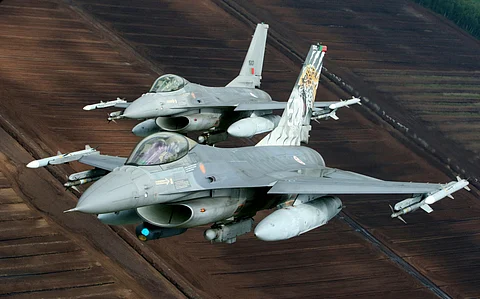
- NEWS
- the EDIT
- COMMENTARY
- BUSINESS
- LIFE
- SHOW
- ACTION
- GLOBAL GOALS
- SNAPS
- DYARYO TIRADA
- MORE

Philippine Ambassador to the United States Jose Manuel Romualdez said that the Armed Forces of the Philippines (AFP) will be ready to face external threats within the next three to five years.
This came after the United States Congress revealed plans to provide a $2.5. billion in aid to the Philippines in the next five years or $500 million every year.
“It will come gradually but you’ll see this in the next three to five years, you will definitely see it, maybe before the end of the term of President Marcos, our armed forces can be seen to be ready for our defense posture,” Romualdez said in a radio interview.
The proposed military aid aims to strengthen the maritime capabilities of the country through the Philippine Navy and the Philippine Coast Guard, as well as the Philippine Air Force.
Romualdez added that Defense Secretary Gilbert Teodoro already gave a list of equipment that the AFP needs, including F16 fighter jets.
An earlier report by Defense News said that the Philippines is also in talks with Sweden for the potential procurement of the Saab JAS 39 Gripen multirole fighter.
Both the F-16 and Gripen are capable multirole fighters, but with some key differences. Presently, the Philippines has 12 South Korean-made FA50 light jets and six turbo-prop Super Tucanos.
Lighter, agile
The latest F-16 boasts advanced radar and potentially heavier payload. However, the Gripen is lighter and more agile, boasting superior short-field performance and potentially lower maintenance costs.
Both the Republican and Democratic parties in the US have expressed their support for the Philippines. “We are at the best relationship with the United States,” Romualdez pointed out.
While this deal raises questions regarding US interests in the Philippines and the surrounding region, the ambassador assured Filipinos that the interests of the two nations are aligned.
“There is no such thing as a free lunch, our relationship with America is of course the exchange of… EDCA and VFA,” Romualdez said.
EDCA is the Enhanced Defense Cooperation Agreement and the VFA is the Visiting Forces Agreement, which the Philippines and the United States have.
Romualdez further explained that the alliance of the Philippines and the US will be beneficial especially in the West Philippine Sea (WPS) where there has been increasing tension over the past few months.
“The other part of it is, we are an ally of the US and we have a mutual defense treaty so it’s good that we strengthen our forces, because a lot has happened in the WPS, we can’t just sit back because nothing will be done, the president said since we have a military alliance, let’s strengthen it, America is ready to go with us so they support us there,” Romualdez said.
Last week, the Philippines and the United States opened the 39th “Balikatan,” the annual joint military exercises of the two nations. The Balikatan will run from 22 April until 10 May.
The AFP on Sunday said the completion of its modernization initiatives will allow the country to effectively respond “not only to security threats but also to disasters and emergencies,” both domestically and regionally.
AFP spokesperson Col. Francel Margareth Padilla said their readiness against potential threats in the West Philippine Sea by the end of President Marcos’ term “is a significant development for national security.”
“The commitment of the AFP to this endeavor underscores the importance of ensuring the country’s sovereignty and territorial integrity,” Padilla told the DAILY TRIBUNE in a Viber message.
Padilla said the AFP’s investment in modern equipment, training, and infrastructure is crucial to the Philippines’ promotion of peace, stability, and resilience in the region.
“Furthermore, the AFP’s readiness serves as a signal of the Philippines’ commitment to maintaining stability and addressing security concerns through collaboration with like-minded nations,” she added.
